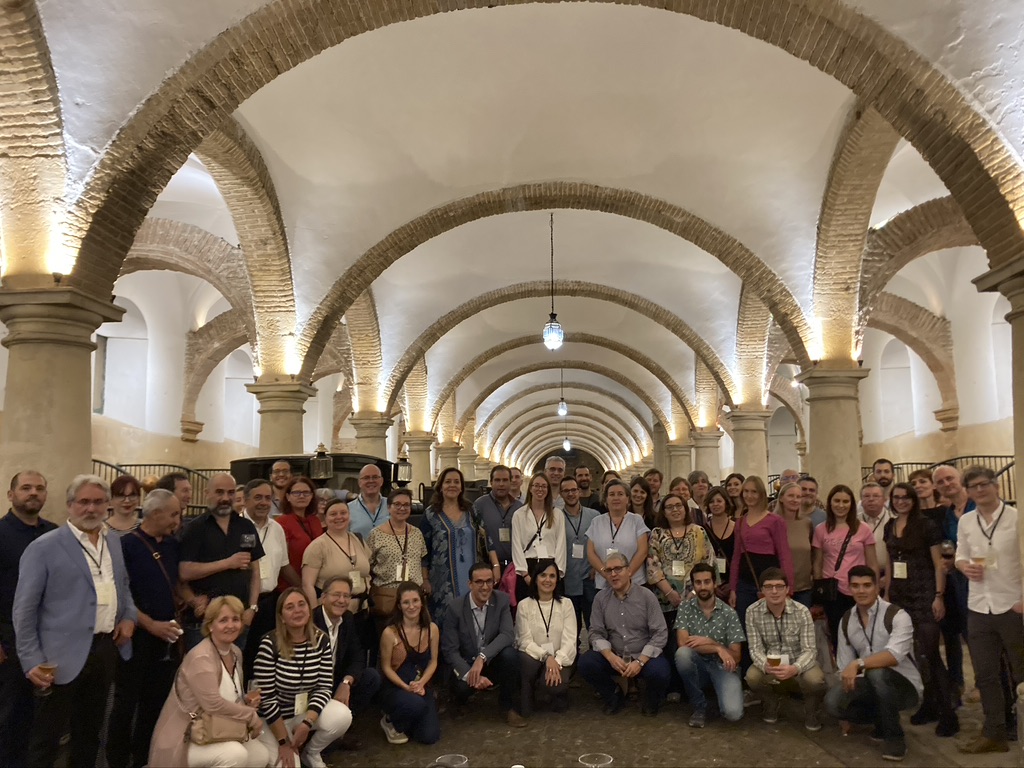The Entomology Unit of the María de Maeztu Unit of Excellence of the Department of Agronomy of the University of Córdoba (DAUCO)
Scientists say a new approach is needed to manage Xylella fastidiosa outbreaks in Europe, moving from emergency mode to more sophisticated strategies. That is the aim of BeXyl, a new EU-funded research project to take on the most threatening plant pest in Europe. The economic losses from diseases caused by plant pathogens, such as Xylella fastidiosa, are estimated as 1 billion dollars worldwide every year.
 BeXyl will last five years (2022-26) and is financed with about 7 million euros by the EU research program Horizon Europe. The first meeting of the participants in the project occurred in Cordoba, Spain, from 17 to 19 October. "BeXyl stands for 'Beyond Xylella'; it means to be able to integrate different strategies to mitigate Xylella fastidiosa outbreaks in the EU," explained the project coordinator Blanca Landa. A new aspect in BeXyl "is the focus on the ecological, social, and economic dimensions," the IAS-CSIC (Institute for Sustainable Agriculture of the Spanish National Research Council) researcher added.
BeXyl will last five years (2022-26) and is financed with about 7 million euros by the EU research program Horizon Europe. The first meeting of the participants in the project occurred in Cordoba, Spain, from 17 to 19 October. "BeXyl stands for 'Beyond Xylella'; it means to be able to integrate different strategies to mitigate Xylella fastidiosa outbreaks in the EU," explained the project coordinator Blanca Landa. A new aspect in BeXyl "is the focus on the ecological, social, and economic dimensions," the IAS-CSIC (Institute for Sustainable Agriculture of the Spanish National Research Council) researcher added.
BeXyl directly involves 31 partners from 14 countries, with UK and Australia as associated partners, and a stakeholder's board with the active participation of more than 40 government agencies, nurseries and farmer's associations, NGOs, government agencies, and various operational groups of the EU-funded European Innovation Partnership. The goal is to create a community of scientists, citizens, and end-users, such as farmers to policymakers, to shorten the distance between research and on-field applications.
BeXyl will also establish a global network of "sentinel plots" acquiring data from a wide range of latitudes and conditions. The project will support studies on the drivers of Xylella fastidiosa epidemics in the EU and improved detection methods for the bacterium and its vectors, with tools ranging from remote sensing technology to dogs' sense of smell. Other research lines include thermal treatment to secure safe plant material exchange, genetic traits for plant resistance, bacteria able to reduce the spread of Xylella fastidiosa within plants, and innovative solutions for helping farmers to use sustainable tools, such as integrated pest management, to control the vectors of the bacterium.
In the margins of the meeting, scientists visited ‘Plantas Continental’, one of the biggest olive nurseries in Andalusia producing certified plant material, and ‘Frutos Moratalla’, a 1400 hectares farm producing orange, walnut, almond and olive with super-intensive methods.
BeXyl Project:
BeXyl is an EU-funded research project designed to improve the management of diseases caused by the quarantine plant bacterium Xylella fastidiosa. BeXyl involves more than 40 scientific institutions, NGOs, companies, governmental agencies, and farmers' and nurseries associations worldwide. The aim is to promote a multidisciplinary approach and innovative solutions to go beyond emergency measures and develop new strategies for sustainable control of Xylella fastidiosa in Europe.


